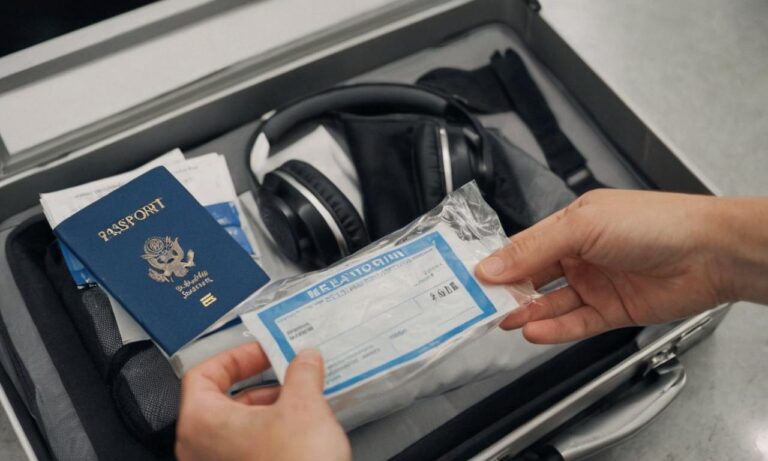Wondering about the rules regarding bringing melatonin on a flight? Let’s delve into the regulations and considerations surrounding this common sleep aid when it comes to air travel.
Understanding Melatonin
Melatonin is a hormone naturally produced by the pineal gland in our brain. It regulates our sleep-wake cycle and is commonly used as a supplement to aid in sleep for those dealing with jet lag or sleep disorders.
Transporting Melatonin on a Plane
The rules governing the transportation of melatonin vary across different countries and airlines. Generally, melatonin is considered permissible for personal use when traveling by air. It’s usually classified as a dietary supplement rather than a medication, but regulations can differ.
International Travel
For international flights, it’s crucial to check the regulations of both the departure and arrival countries. Some nations might have restrictions on the quantity of melatonin you can bring or may require specific documentation.
Domestic Flights
When flying domestically, the rules might be more relaxed. However, it’s always recommended to carry melatonin in its original packaging with clear labeling to avoid any confusion or issues during security checks.
Tips for Carrying Melatonin
To ensure a smooth experience when carrying melatonin on a plane:
- Check the specific guidelines of the airline and countries involved in your journey.
- Carry melatonin in its original packaging.
- Keep it in your carry-on luggage to facilitate security checks.
- Consider carrying a prescription or doctor’s note, especially if traveling with large quantities or entering a country with stricter regulations.
Final Considerations
While melatonin is generally accepted for personal use during air travel, it’s essential to stay informed about the rules and regulations. Being proactive by checking guidelines beforehand can prevent any unwanted surprises during your journey.
Always consult a healthcare professional if you have specific concerns or questions about using melatonin, especially in conjunction with other medications or health conditions.
Understanding Melatonin
Exploring the effects of melatonin on the body and its role in regulating sleep cycles can provide insights into its usage as a sleep aid.
Melatonin’s Role in Sleep Regulation
Melatonin plays a vital role in maintaining the body’s circadian rhythm, influencing the quality and duration of sleep. Understanding how this hormone interacts with our biological clock is key to comprehending its benefits during air travel.
Transporting Melatonin on a Plane
Navigating the legalities of carrying melatonin during air travel involves adhering to distinct guidelines set by different airlines and countries.
Guidelines on Melatonin Quantities
Understanding the limitations on the amount of melatonin allowed for personal use during flights helps ensure compliance with varying regulations.
| Country/Airline | Allowed Melatonin Quantity | Additional Requirements |
|---|---|---|
| Country A | Up to 3 months’ supply | None |
| Country B | Restrictions apply | Prescription needed |
Legal Considerations
Understanding the legal categorization of melatonin, whether as a dietary supplement or a controlled substance, is crucial when preparing for air travel.
Documentation and Labeling
Ensuring proper documentation and clear labeling on the packaging of melatonin can prevent misunderstandings or complications at security checkpoints.
Frequently Asked Questions
When it comes to carrying melatonin on a plane, certain queries often arise. Here are answers to some common questions:
Can I carry liquid melatonin in my carry-on luggage?
Regulations vary, but typically, liquid melatonin in quantities under 100ml complies with TSA guidelines for carry-on liquids.
Is there a limit to the dosage I can carry?
The allowed dosage can differ by country. Check the specific regulations of the departure and arrival countries to avoid any issues.






